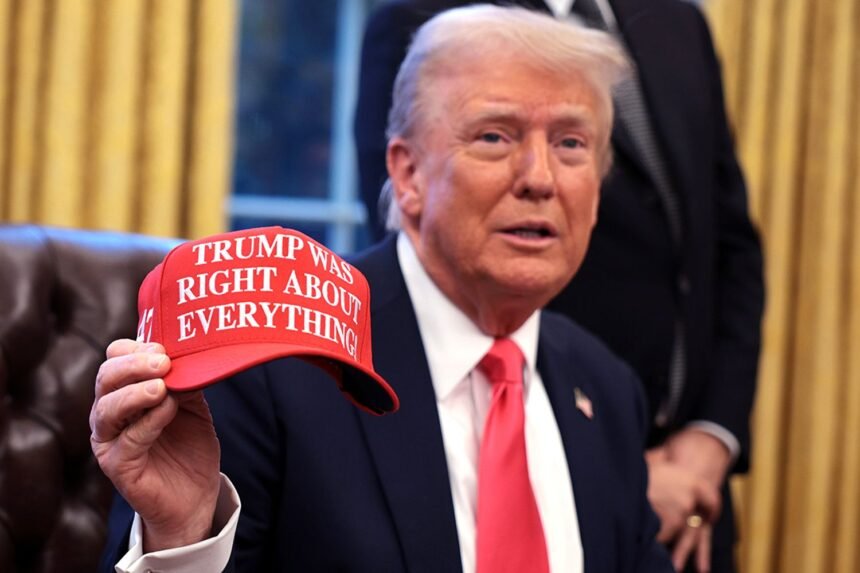U.S. President Donald Trump has suggested that certain television networks should have their broadcast licenses revoked, after publicly supporting the Federal Communications Commission (FCC) in a dispute over the suspension of ABC host Jimmy Kimmel.
ABC, owned by Disney, announced Wednesday evening that Kimmel would be removed from broadcasting “for an indefinite period” following backlash over comments he made about the killing of conservative activist Charlie Kirk last week.
On Monday, Kimmel appeared to imply that the suspect was a MAGA Republican, despite Utah authorities stating the individual was “indoctrinated with left-wing ideology.” His remarks prompted the FCC to threaten regulatory action, leading to ABC suspending his show Jimmy Kimmel Live!
Trump’s Remarks on Air Force One
Speaking to reporters aboard Air Force One as he returned from a state visit to the UK, Trump criticized media bias:
“I read somewhere that networks were 97% against me—again, 97% negative. Yet I won, and easily, the seven swing states [in last year’s election],” he said.
“The press only gives me bad publicity. I mean, they’re getting a license. I would think maybe their license should be taken away.”
Kimmel’s Comments Spark Controversy
During his Monday monologue, Kimmel, 57, claimed the “MAGA crowd” was “desperately trying to frame the shooter of Charlie Kirk as anything but one of their own” in an effort to score political points. He also mocked Trump’s reaction to Kirk’s death, comparing it to “a four-year-old mourning a goldfish.”
Despite the controversy, Kimmel had also posted on Instagram condemning the shooting and sending “love” to Kirk’s family.
FCC Response
Speaking to Fox News on Thursday, FCC Chair Brendan Carr defended the regulator’s actions, saying Kimmel’s suspension was not “the last shoe to drop.”
“We will continue to hold these broadcasters accountable to the public interest,” Carr said.
“If broadcasters don’t like this simple solution, they can hand in their license to the FCC.”
The FCC has regulatory authority over broadcast networks such as ABC and their affiliates but has limited power over cable channels like Fox or MSNBC and no jurisdiction over podcasts or most streaming content.
Legal Concerns
Legal scholars emphasized that the First Amendment of the U.S. Constitution, which protects free speech, would prevent the FCC from lawfully revoking licenses based on political disagreements.







